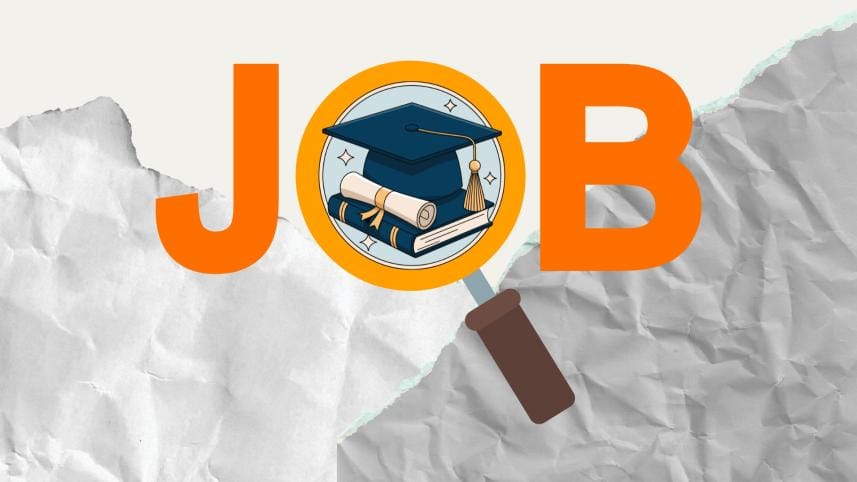What’s stopping our graduates from being fully ready for the job market?

There are significant differences between the requirements in the job market and the potential skillset in the education scene. However, differences in skillset as well as gaps in the curricula lead to distinct mismatches and inconsistencies. This sort of gap between a graduate's skills upon completion of their education and the skills demanded in the job market remains significantly challenging in several countries besides Bangladesh. Despite the rise of literacy rates, the mismatch of skill sets keeps creating persistent voids and unemployment problems.
As per our various observations, one of the primary reasons for this is the following of old curricula, which hardly align with the evolving industrial requirements. Since the University Grants Commission of Bangladesh (UGC) has emphasised the OBE— Outcome-Based Education—curriculum system, almost all institutions have been trying to improve their academic curricula.
On the contrary, we see that educational institutions need to emphasise the theoretical knowledge base, also to make the human mind think from the core, without directly jumping into the practical side of things. Moreover, we realised that the same degree from different institutions seems to have a different curriculum as well.
Therefore, the differences we understood in the purpose sometimes seem difficult to match. Ironically, in the later years of graduation, if practical learning along with simulation and workshops is integrated, then it is possible to reduce the gap to some extent.
During a conference in 2020, we discussed the advancements of technology, where information technology is going through rapid changes, especially given how mainstream AI technology is becoming. Universities often fail to update their programmes quickly enough to keep pace with such technological advancements. At the conference, we further highlighted that the educational institutions create an excess of graduates that exceeds market needs in certain fields.
On top of all that, the divide between academic institutions and industries remains wide because of minimal cooperation between them. Back in 2016, we, along with a few of our colleagues, were discussing how the design of curricula at universities and technical colleges often operates independently from market requirements. That's because businesses have minimal participation in developing skills and educational programmes. Hence, academic programmes lose their relevance as educational institutions separate from industry requirements, which, in turn, prevents students from easing into the workforce.
The lack of congruence between educational training and market needs requires education systems to create adaptable learning models and to develop industrial training systems and promote lifelong education. University-business-policymaker alliances need to develop an education system which prepares graduates for jobs, effectively making the labour market sustainable.
For a long time, there has been a significant problem connecting academia to marketplace needs. A solution to this requires universities to base their education on current industry practices by developing practical learning strategies that fit real-world needs. Educational institutions should work together with businesses and policymakers to establish education systems that are adaptable for the future and meet both the labour market needs and innovation development.
Dr Tarnima Warda Andalib is working as an assistant professor in BRAC University, Dhaka, as well as a global consultant director at Oxford Impact Group, UK.
Dauwood Ibrahim Hassan is a research assistant at BRAC University, and a fresh graduate of Marketing and CIM, with a keen interest in digital marketing, content creation and data analysis.



 For all latest news, follow The Daily Star's Google News channel.
For all latest news, follow The Daily Star's Google News channel.
Comments